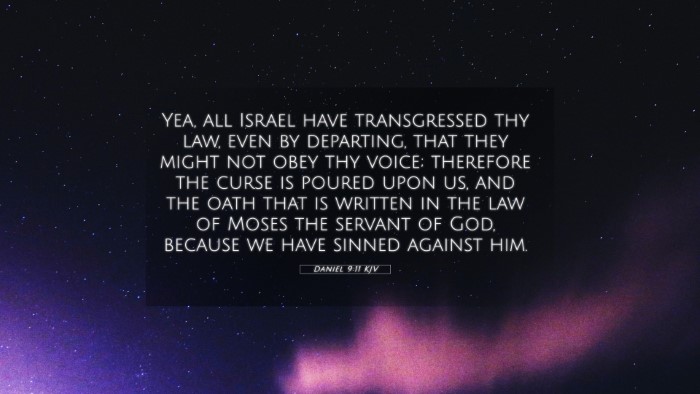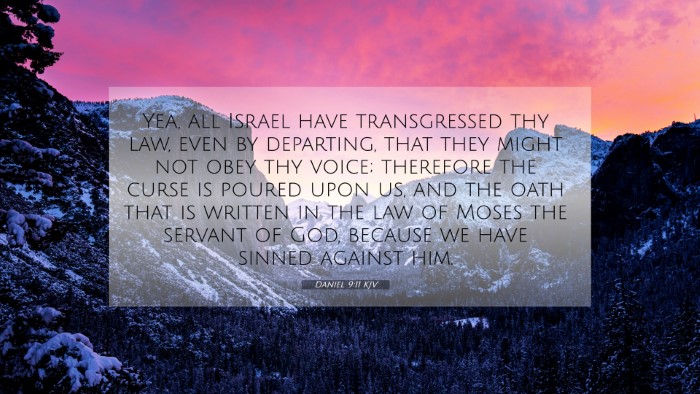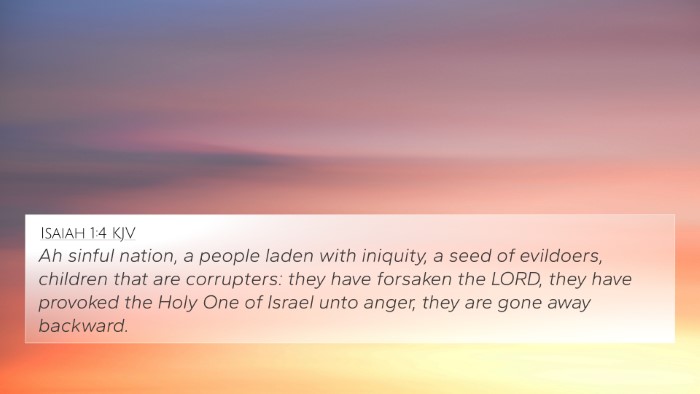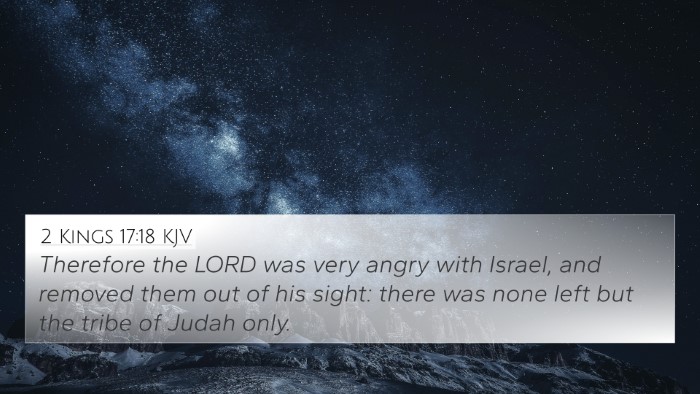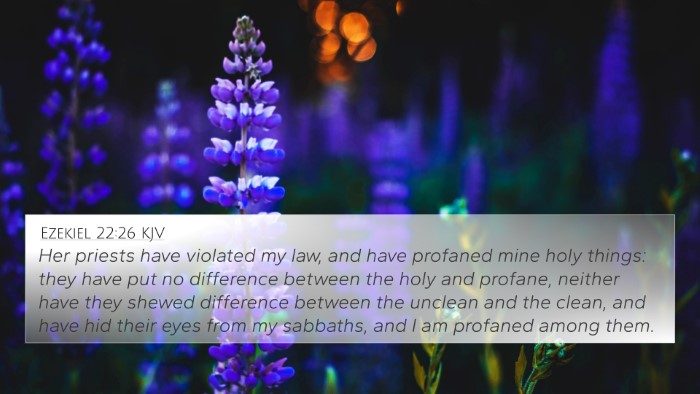Understanding Daniel 9:11
Daniel 9:11 states: "Yea, all Israel have transgressed thy law, even by departing, that they might not obey thy voice; therefore the curse is poured upon us, and the oath that is written in the law of Moses the servant of God, because we have sinned against him." This verse highlights several key themes including the consequences of sin, the collective responsibility of Israel, and the faithfulness of God's word.
Verse Context
This chapter occurs during Daniel's prayer for the sins of Israel, reflecting on the captivity of the people of God due to their unfaithfulness. Daniel uses this moment to confess the sins of Israel and plead for mercy. The foundational purpose here is to understand how Daniel recognizes the fulfillment of prophetic words regarding the fate of Israel.
Commentary Insights
-
Matthew Henry:
Henry emphasizes the communal sinfulness of Israel, noting how their collective disobedience has led them to face dire consequences as stipulated in the Law of Moses. He indicates that the acknowledgment of sin is a crucial step toward restoration and divine forgiveness.
-
Albert Barnes:
Barnes outlines the significance of the “curse” mentioned in the verse, connecting it to Deuteronomic law where blessings and curses are outlined according to Israel's obedience or disobedience to God. He stresses that the acknowledgment of sin leads to the understanding of God’s justice.
-
Adam Clarke:
Clarke points out that Israel's sin is portrayed as a breaking away from God's commandments. He explains that the “oath” referenced signifies the predetermined consequences for their rebellion against divine guidance, underscoring the serious nature of sin and the need for heartfelt repentance.
Thematic Bible Verse Connections
Daniel 9:11 serves as a significant line connecting several biblical themes, including confession, sin, judgment, and God's faithfulness. Understanding this verse involves examining its ties to other relevant scriptures.
Related Bible Cross References
- Deuteronomy 28:15: Discusses the curses resulting from disobedience to God's commandments.
- 1 John 1:9: Emphasizes the importance of confessing our sins in order to receive forgiveness.
- Nehemiah 1:6-7: Nehemiah’s prayer also references the sins of Israel, underscoring communal accountability.
- Jeremiah 5:25: Speaks of the consequences of Israel's transgressions impacting their land and lives.
- Romans 6:23: The New Testament tie explaining the wages of sin is death, aligning with the theme of curse for disobedience.
- Psalm 106:6: Reflects on Israel's sins and failures, illustrating the communal aspect of sin.
- Lamentations 3:39: Questions why people complain when punished for their sins, resonating with the consequence of God's justice.
- Exodus 20:5: Discusses God’s visitation of iniquity upon children as a result of familial sin, highlighting generational consequences.
- Isaiah 59:2: Explains that sin creates separation from God, a truth deeply connected to Daniel’s lament.
- Romans 11:22: Warns of the severity and the goodness of God—an essential reminder of God’s character in dealing with sin.
Cross-Referencing Biblical Texts
Cross-referencing these verses aids in understanding the broader narrative of scripture, particularly how God's justice is intertwined with mercy. The purpose of looking at these connections enhances comprehension of the overall message Daniel conveys in his prayer.
Tools for Bible Cross-Referencing
Utilizing a Bible concordance or a cross-reference guide can allow deeper study into how these verses intersect. Employing these tools helps one draw parallels and enhances one's ability to engage in cross-reference Bible study.
Conclusion
Daniel 9:11 serves not only as a historical lament but as a theological anchor illustrating God's relationship with His people amidst their transgressions. By understanding this verse in context, alongside related scriptures, one can appreciate the theme of repentance and the consistent call for obedience throughout the Bible.
This analysis reveals how important it is to explore connections between Bible verses for a more enriched theological discourse, allowing readers to engage with the text on a deeper level.

